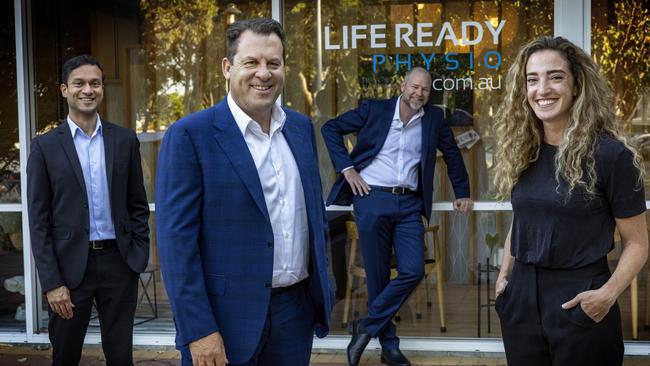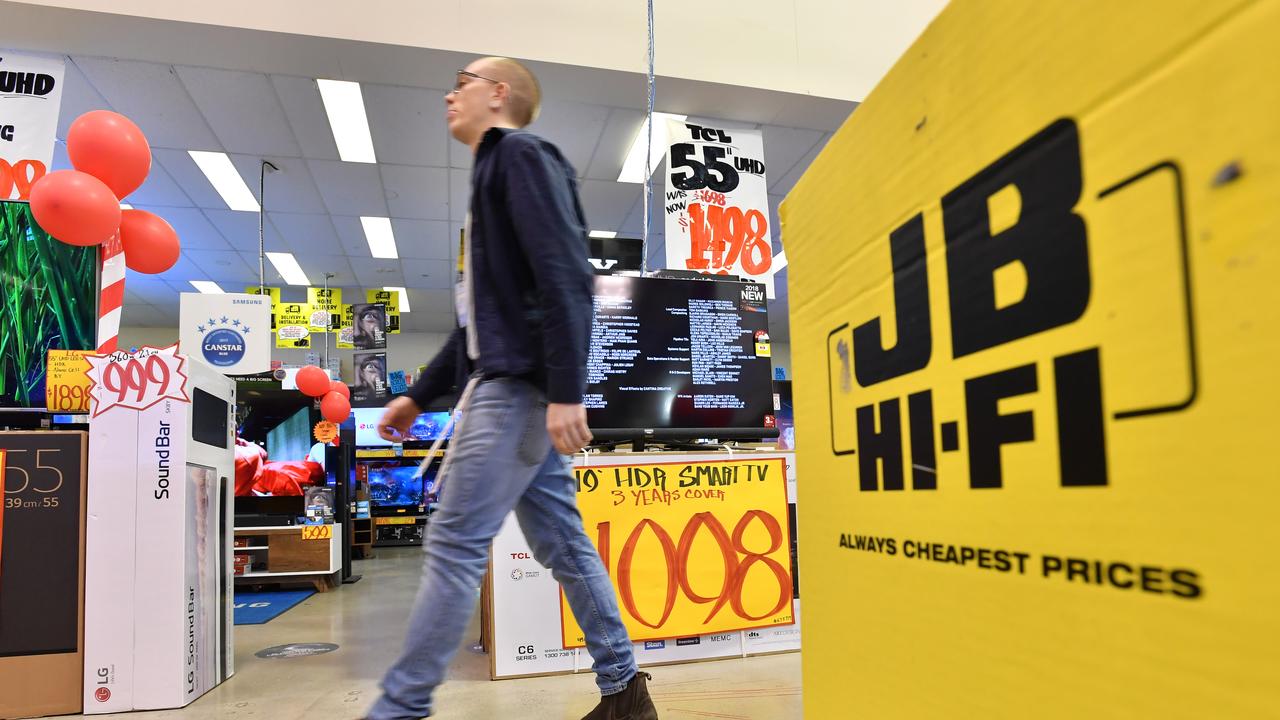HBF reveals strategy to slash out of pocket health insurance costs
Perth-based health insurer HBF is upping the ante in its aggressive expansion into the east-coast private health insurance market.

Business
Don't miss out on the headlines from Business. Followed categories will be added to My News.
Not-for-profit health insurer HBF is upping the ante in its battle with its larger listed rivals, snapping up a range of health providers — from dentists to physiotherapists — in an effort to rein in out-of-pocket costs.
On Tuesday, the Perth-headquartered health insurer — which has been aggressively expanding across the east coast — acquired Australia’s third-biggest physiotherapist group, Life Ready, for an undisclosed sum.
It comes after the company bought a 10 per cent slice of ASX-listed dental group Pacific Smiles for $41.9m last month.
But HBF chief executive John Van Der Wielen says while the company is snapping up ancillary health providers, he has ruled out adopting Medicare’s strategy of buying stakes in hospitals.
“We’re not planning to go into hospitals. We’re looking at lower clinical acuity,” Mr Van Der Wielen said.
But the strategy to reduce out of pocket costs is similar to Medibank’s, in that HBF is looking at how it can shorten costly hospital stays and provide more services, such as rehabilitation, in its members’ homes. Mr Van Der Wielen said HBF would also provide rebate incentives to members who use Life Ready services.
“Our members tell us they’d rather do some of that rehab at home. And the costs of doing rehabilitation at home are drastically different than the current model where people are doing it in hospital,” Mr Van Der Wielen said, adding it is a policy that works only when clinically appropriate.
“When you have a clinical reason to stay in hospital, clearly it is really super important, and we’d never interfere with clinical advice.”
Life Ready is Western Australia’s biggest physiotherapy group and the third biggest in Australia, employing more than 400 people nationwide, having clinics also in Victoria and Queensland. Crucially for HBF, it has a mobile business, which delivers in-home and community services.
“The founders who started the business in Western Australia know HBF really well. They‘re also highly supportive of the consideration of say having HBF as a partner with 1.2 million members Australia-wide, or potentially a private equity owner is a vastly different proposition.”
Life Ready also corporate services arm, Biosymm, which delivers early intervention and work health service programs to more than 50 companies across Australia and New Zealand, including several ASX 20 companies.
“It (Biosymm helps) reduce workers’ compensation costs,” Mr Van Der Wielen said.
“One of the great things is (with) minor injuries where you can quickly get on-site physio care, (is it) assists speedy rehab, and that assists HBF as well because they’re private insurance customers.’’
HBF will fund the acquisition from its existing cash reserves of $276.8m, with its net assets totalling $1.49bn, according to its 2021 annual report. The deal is expected to be completed by March, requiring no formal regulatory approvals.
According to its latest annual report, HBF had a 7.3 per cent share of Australia’s private health insurance market, making it the fifth biggest provider. It delivered a net profit of $17.7m, a 42.9 per cent decrease on 2020.
Health insurers have long-owned ancillary health services, with Bupa owning dental and optometry clinics.
Medibank took that one step further in August, 2020 when it acquired 49 per cent of East Sydney Private Hospital at Wooloomooloo. It has since entered another hospital venture in Melbourne where it will build a $64m short-stay hospital in partnership with 42 doctors at Healthscope’s former Cotham Private facility.
“Our opportunity is to play a role to ensure our customers have more choices for their health and wellbeing to offer them support to navigate the health system and support them with preventive healthcare options,” Medibank chief executive David Koczkar said last April.
Meanwhile, hospitals themselves have also sought to become more “integrated” healthcare providers, with Australia’s biggest private hospital operator Ramsay also owning a pharmacy business.
In early 2020, Ramsay chief executive Craig McNally doubled down on that strategy, launching a $1.4bn capital raising to create a war chest aimed at accelerating its out-of-hospital growth strategy and become a fully integrated healthcare company.
“Medium to long term, we are still very positive about growth — not just organic and by developing business but by acquisition as well,” Mr McNally said.
Originally published as HBF reveals strategy to slash out of pocket health insurance costs



